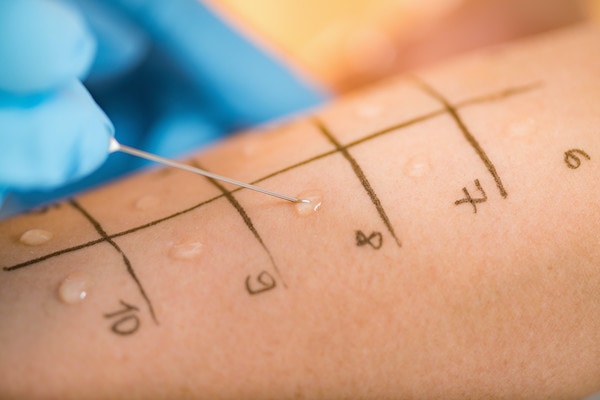USP Gluten Detection in Bakery and Pasta Products
The United States Pharmacopeia (USP) [1] standard , “Evaluation of Residual Gluten Content in Foods Using Immunochemical Assays”, provides a method for quantifying residual gluten content. This service specifically targets bakery and pasta products, ensuring compliance with the stringent requirements set forth by USP . Bakery and pasta manufacturers are required to ensure that their products adhere to these standards to prevent cross-contamination and safeguard individuals with celiac disease or other gluten sensitivities.
The test involves several steps. Initially, a representative sample of the product is collected and processed to prepare it for analysis. This may include grinding, homogenization, or extraction methods depending on the nature of the product. Once prepared, the sample undergoes an immunochemical assay using monoclonal antibodies specific to gluten proteins. The assay measures the presence and concentration of gliadin and/or glutenin fragments.
The results are reported in parts per million (ppm). A result below 20 ppm is generally considered compliant with USP , which sets a limit for gluten content in foods labeled as "gluten-free". However, it's important to note that USP does not allow the use of this term unless the product meets the criteria set forth by this standard. For products intended to be labeled as gluten-free, an even stricter limit may apply depending on local regulations.
The accuracy and precision of this method are paramount in ensuring reliability. Our laboratory adheres to strict quality control procedures, using state-of-the-art equipment calibrated according to international standards (ISO/IEC 17025 [2]). This ensures that every test is performed under controlled conditions, minimizing the risk of errors.
By offering this service, we help our clients maintain compliance with regulatory requirements while also enhancing consumer safety. Our expertise in food and feed testing allows us to provide comprehensive services tailored to each client's unique needs. Whether you're a small bakery or a large-scale pasta manufacturer, we can assist you in ensuring that your products meet the highest quality standards.
- Environmental Impact: By detecting residual gluten accurately, our service helps prevent unnecessary exposure to gluten for those with dietary restrictions, thus promoting better health outcomes. Additionally, accurate testing ensures efficient resource utilization and reduces waste associated with non-compliant products.
- Sustainability: Ensuring compliance not only protects consumer health but also supports sustainable practices by minimizing the use of resources in producing non-compliant products. This contributes to overall sustainability efforts within the food industry.
In conclusion, our USP Gluten Detection service is crucial for maintaining quality and safety standards in bakery and pasta products. It provides peace of mind for both manufacturers and consumers, ensuring that every product meets stringent regulatory requirements.
Why Choose This Test
Selecting the appropriate testing method is critical when dealing with gluten in bakery and pasta products. The USP method offers several advantages over other detection techniques:
- Specificity: The immunochemical assay used in this service provides high specificity towards gluten proteins, minimizing false positives.
- Sensitivity: The method can detect very low levels of gluten, ensuring that even minute amounts are identified.
- Rapid Results: Testing times are significantly reduced compared to some other methods, allowing for quicker decision-making processes.
- Regulatory Compliance: By adhering strictly to USP , this service ensures full compliance with regulatory standards.
The benefits of choosing our service extend beyond just meeting regulations. It enhances brand reputation by demonstrating a commitment to quality and safety, which can lead to increased customer trust and loyalty. Additionally, it supports ongoing product development efforts by providing accurate data for formulation adjustments.
International Acceptance and Recognition
The USP Gluten Detection method is widely recognized not only in the United States but also internationally. Many countries have adopted or are considering adopting similar standards to ensure food safety and protect consumers with dietary restrictions.
In Europe, for example, the European Food Safety Authority (EFSA) has been working towards harmonizing gluten testing methods across member states [3]. While not directly aligned with USP , the principles and techniques used in this service can inform future international standards.
In Asia, Japan has implemented strict regulations regarding gluten content in food products aimed at protecting its population from potential health risks associated with gluten consumption. Other countries like South Korea and Australia follow suit by adopting similar testing protocols to ensure product safety.
By leveraging our expertise in USP Gluten Detection, we help clients stay ahead of global trends and regulatory changes, ensuring their products remain compliant across multiple jurisdictions.





